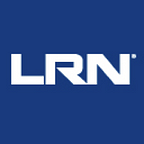Panama Papers and Radical Transparency: Another Example of the New Normal
By Nick Petschek
The Panama Papers hit headlines around the world in early April. They will again today when the International Consortium of Investigative Journalists, a project of the Center for Public Integrity, releases a publicly searchable database of the 200,000+ people and offshore entities who were clients of Mossack Fonseca, the secretive Panamanian law firm at the heart of the scandal. The documents suggest a large number of firms and individuals, including 12 current and former heads of state, have been concealing assets and bribes, avoiding taxes, laundering money and circumventing sanctions.
The Panama Papers is the biggest leak of confidential documents ever; orders of magnitude larger than NSA or WikiLeaks. The U.S. Attorney’s office for the Southern District of New York has already opened a criminal investigation where the Papers are “relevant”, a.k.a. related to criminal activity. Leaving the legal implications and analysis to the prosecutors, this is another example of the radically transformative power of transparency, and how companies can quickly find themselves having an unwanted, global conversation of their inner workings and dubious ethical behavior upon which their business models are predicated.
In defending his firm, founder Jürgen Mossack said, “People do make mistakes. So do we, and so does our compliance department. But that is not the norm.” From the depth and breadth of the disclosures, it would appear that Mossack’s compliance department made nothing but mistakes, if not outright conscious decisions, until a whistleblower, alias John Doe, decided to act. John Doe recently characterized the firm as, “More than just a cog in the machine of ‘wealth management’, [rather one that] used its influence to write and bend laws worldwide to favor the interests of criminals.”
Mossack Fonseca clearly made no effort at real compliance. Indeed, based on its founder’s remarks, the compliance “mistakes” he cited appear to have been the firm’s business model. Given the roster of corrupt officials, stupendous amounts of cash, tax evasion and money laundering exposed by the Panama Papers, it clearly had no ethics either. It took a whistleblower, not the firm’s internal checks and balances or governance systems, to bring the unacceptable behaviors to light, and hopefully, to an end.
What’s the main lesson here? Radical transparency is the new normal. Neither companies nor individuals can depend upon secrecy to shield them from scrutiny — the world is now too interconnected and interdependent to hide in the (digital) shadows. Businesses where unethical behaviors are the modus operandi will continue to find themselves in a glaring, international spotlight — Mossack Fonseca is just one such example.
The call to action is in the very name of the organization that brought us the Panama Papers: The Center for Public Integrity. Embracing values is an imperative for organizations now more than ever. It only took one person to share 40+ years of dirty secrets. This is no longer about compliance, it’s about ethics, and ethics is only possible when we all live by our values.
